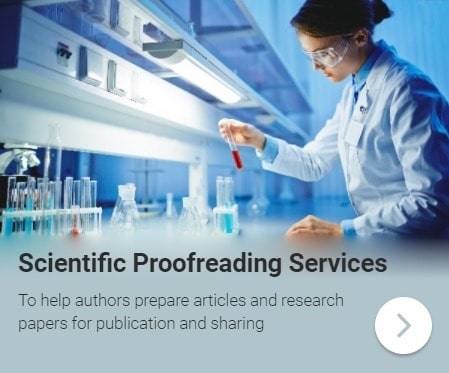2.1.3 Reviewing the Relevant Literature in a Preliminary Way
Although reviewing the sources you read for your thesis is closely related to taking notes while reading them, it is a somewhat more formal next stage in the same process. Almost every thesis requires some kind of literature review or summary of relevant scholarship (even if it is only a short section within another chapter) in order to position the research conducted in the thesis in relation to other research in the area. Some doctoral candidates will want to postpone writing their thoughts about the sources they consult until the literature review chapter is actually drafted, usually for the proposal, which is certainly a viable way of proceeding, but it can be useful to do preliminary reviews of sources that you expect will definitely be central to both your literature review and your thesis as a whole.
Since part of the purpose of writing a literature review is to grow familiar with the relevant literature, it is never too early to begin, and by actually reviewing the sources that seem most important early in the thesis process, you can begin to identify the ideas and themes that will ultimately become the keys to organising your literature review chapter and, in some cases, other chapters of your thesis. You can also begin to see more clearly the problems, limitations and gaps in current scholarship that your thesis will ideally address and fill, and you will be able to identify any significant overlaps with your own intended research, which may then require slight adjustments – these, too, are good reasons for conducting a preliminary literature review.
Reviewing a source involves summarising and interpreting it briefly, as well as providing a critique of it and its research. What topic/idea/problem is the author exploring? What are the main points made by the author? What are the key elements of the methodology? Is the methodology sound? What are its limitations? Does the discussion accurately reflect the nature of the methodology and results? Do the conclusions follow logically from those methods and results? These are only a few of the many questions that you might ask yourself while preparing a review of an individual source, and what you choose to include in the review has a great deal to do with the nature of your work and your own understanding of the source, because while objective judgements about a source can certainly be valid, they are never perfectly objective, and it is your perspective and your research that determine the usefulness and relevance of a source in relation to your thesis.
You may want to write these preliminary reviews in a paragraph or two each, or use a more informal format that records the key issues (in a list, for instance). There may be considerable overlap between your initial notes on a source and your first attempt to review it, but whatever work you choose to do at this point will inevitably prove useful and save you work when you begin drafting the formal literature review for the proposal and thesis (on which, see Section 1.2.2 and Sections 3.2 and 4.3).
As a final thought about reading and assessing the literature you consult in the process of preparing your thesis, I would like to emphasise that if you find in your textual travels a book, article, presentation, report, thesis, dissertation or any other kind of source that appears to cover the same ground you intend to explore in your thesis, do not panic. Instead, read it very carefully indeed, noting among other things exactly how it overlaps your own work and how it differs.
Replication can be both important and necessary, and individual scholars rarely treat the same material or deal with the same topic in the same ways, but it may be that you will need to adjust your own plans somewhat to make your thesis sufficiently unique. If so, this is a good time to begin making those adjustments. Scholarship so similar to your own may not have been what you had hoped to find in your research, but it can nonetheless help you refine and define your work with greater precision in a variety of ways, and therefore be a blessing in disguise rather than a hindrance to your success. Covering well-trod ground in new and more effective ways can, after all, lead to the abandonment of established theories and the development of better ones, which is a fitting goal for doctoral research.
2.1.4 Recording the Results of Trials, Experiments, Surveys and Interviews
If the research for your thesis involves methods beyond reading and assessing literature, such as the use of trials, experiments, surveys or interviews, it is essential that you keep accurate records and well-organised data regarding the nature and results of these procedures. This may mean carefully filing and backing up data on your computer, painstakingly recording answers in an interview or investing in a file box to organise completed questionnaires, but it usually involves a great deal more organisational and analytical work. Interviews, for instance, may have been recorded via audiovisual devices or in shorthand notes and thus be in need of transcription or expansion; respondents’ answers to individual items on a questionnaire may need to be compared and categorised; the raw data from trials and experiments may need to be analysed (in many cases via specialised software) and the results recorded. In all such cases and others, it is wise to do whatever needs to be done to the data you collect to make them useful for your thesis as soon as possible, and for more than one reason.
In the first place, if anything in your procedures or findings is unclear or missing, it is usually easier to ask questions and repeat procedures close to the time of the original research process when participants and resources may still be available. You might need to seek institutional approval a second time when repeating certain kinds of research, even early in the thesis process, and if this is the case, it is best to make the necessary arrangements sooner rather than later. Secondly, if the data you have gathered are insufficient, this will often be clear only after they have been analysed and the results recorded in some way, and leaving this analysis until there may be too little time to circulate another questionnaire, for instance, or conduct further interviews or trials will be detrimental to the progress of the thesis, especially if you need to obtain further approval.
Finally, the results of your research methods may reveal trends very different from those you envisioned, and this could alter the thesis in fundamental ways that you will need to know about as you begin writing your thesis. It is therefore essential to the successful progress of a thesis to bring each aspect of the overall research process to an acceptable level of completion as soon as possible, and to keep the results you achieved in mind as you conduct further research and work at drafting the thesis. Writing a brief report on each procedure once you have completed it allows you to record the nature of the data collected (their sufficiency, reliability etc.), comment on the results of your preliminary analysis of the data and reflect on any findings that were particularly surprising, unusual or revealing. Such reports need not be formal, of course, but they must be clear and precise enough that they make good sense to you when you need to return to them while drafting the results and discussion chapter(s) of your thesis (on which, see Section 4.4).
Why PhD Success?
To Graduate Successfully
This article is part of a book called "PhD Success" which focuses on the writing process of a phd thesis, with its aim being to provide sound practices and principles for reporting and formatting in text the methods, results and discussion of even the most innovative and unique research in ways that are clear, correct, professional and persuasive.
The assumption of the book is that the doctoral candidate reading it is both eager to write and more than capable of doing so, but nonetheless requires information and guidance on exactly what he or she should be writing and how best to approach the task. The basic components of a doctoral thesis are outlined and described, as are the elements of complete and accurate scholarly references, and detailed descriptions of writing practices are clarified through the use of numerous examples.
The basic components of a doctoral thesis are outlined and described, as are the elements of complete and accurate scholarly references, and detailed descriptions of writing practices are clarified through the use of numerous examples. PhD Success provides guidance for students familiar with English and the procedures of English universities, but it also acknowledges that many theses in the English language are now written by candidates whose first language is not English, so it carefully explains the scholarly styles, conventions and standards expected of a successful doctoral thesis in the English language.
Individual chapters of this book address reflective and critical writing early in the thesis process; working successfully with thesis supervisors and benefiting from commentary and criticism; drafting and revising effective thesis chapters and developing an academic or scientific argument; writing and formatting a thesis in clear and correct scholarly English; citing, quoting and documenting sources thoroughly and accurately; and preparing for and excelling in thesis meetings and examinations.
Completing a doctoral thesis successfully requires long and penetrating thought, intellectual rigour and creativity, original research and sound methods (whether established or innovative), precision in recording detail and a wide-ranging thoroughness, as much perseverance and mental toughness as insight and brilliance, and, no matter how many helpful writing guides are consulted, a great deal of hard work over a significant period of time. Writing a thesis can be an enjoyable as well as a challenging experience, however, and even if it is not always so, the personal and professional rewards of achieving such an enormous goal are considerable, as all doctoral candidates no doubt realise, and will last a great deal longer than any problems that may be encountered during the process.
Interested in Proofreading your PhD Thesis? Get in Touch with us
If you are interested in proofreading your PhD thesis or dissertation, please explore our expert dissertation proofreading services.


Services
PhD Dissertation Proofreading
Our PhD dissertation proofreaders specialise in improving grammar, sentence structure, citations, references, clarity, logical flow and readability.
Master’s Dissertation Proofreading
To avoid failure and its consequences, send your dissertation to our master’s dissertation proofreading service.
Scientific Dissertation Proofreading
Our scientific proofreaders specialise in correcting and perfecting the language, editorial styles and references across all science fields.
Headquarters
Dissertation-Proofreading.com
Allia Future Business Centre
The Guildhall
Market Square
Cambridge
CB2 3QJ
United Kingdom
More Expert Proofreading Services
Journal Editing
Journal article editing services
PhD Thesis Editing
PhD thesis editing services













